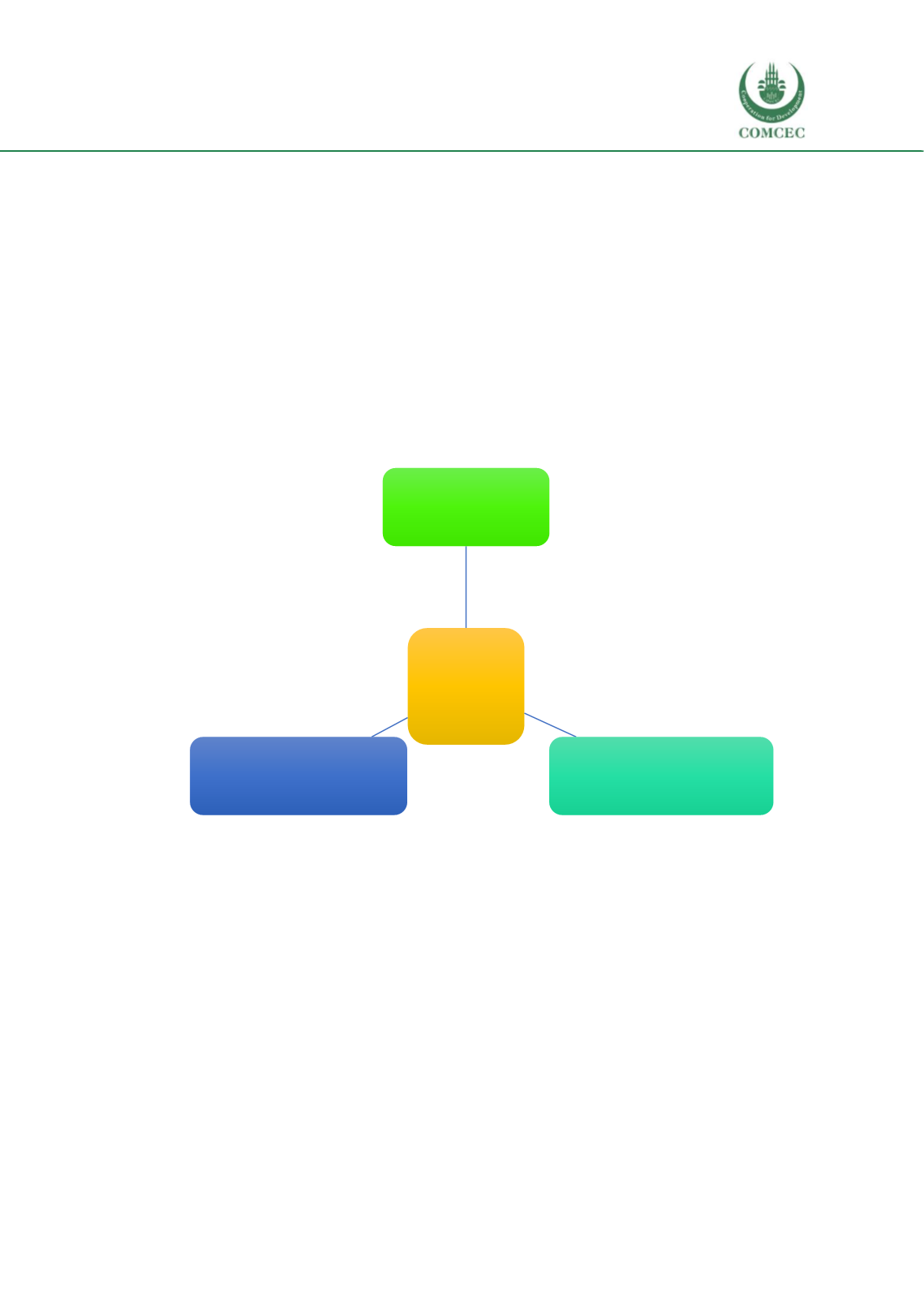

Skills Development: Vocational Education
in the Islamic Countries
31
In order to discuss the skill gap in theworld, this section primarily emphasizes on the broader
region such as: Africa, Asia and Arab in wheremost of the OIC countries are located.
1.8.2. Skill Gap in Africa
Very recent study (e.g., Jayaram & Engmann, 2017) reported that there are three basic skills
which are required for sustainable development of African countries. (i) It includes
communication and “learning to learn” skills. It also encompasses numeracy, literacy, and other
cognitive skills. (ii) Young people should have social and citizenship skills i.e. the ability to
cooperate with others and technical skills for being able to perform their tasks in theworkplace.
(iii) It includes soft skills, individual development skills, and ability to contribute to a Pan -
African identity.
Figure 1.6: Three types of skills in African Countries
A few examples from OIC countries in Africa are worth to mention here to clarify the overall
scenario (African Context). First, in Senegal, two types of enterprises such as SMEs (Small and
medium enterprises) and LEs (larger enterprises) require different skills. For instance, former
one focuses more on cognitive skills whereas later emphasizes towards both cognitive and non-
cognitive skills. Both
non-cognitive
such as drive to work, discipline, motivation and
cognitive
skills
such as reading and writing, are prioritized in Burkina Faso. On the other hand, in both
Uganda and Burkina Faso technical skills are seen important in sectors like construction and
finance (source: Jayaram & Engmann, 2017).
In Cameroon, employers in both formal and informal sector require the following skills:
basic cognitive skills,
advanced skills: thinking and problem-solving,
social or citizenship skills,
non-cognitive skills,
African
Contexts
Communication&
learning to learn
(cognitive skills)
Citizenship &
Technical skills
Life &
non-cognitive skills
















